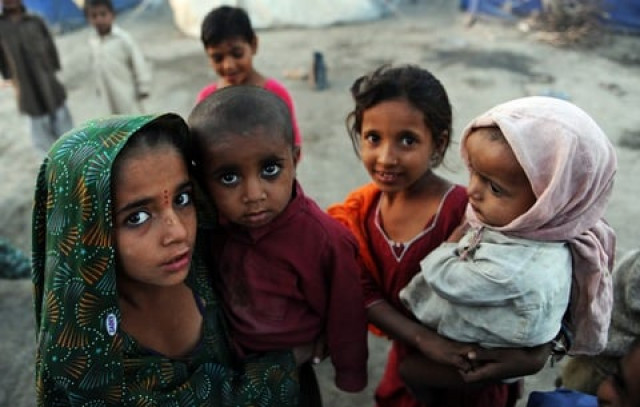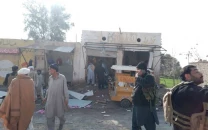Struck by calamity and in for a ‘secondary disaster’
Millions of displaced people suffer due to lack of social service in unplanned settlements, say experts.

Millions of people displaced by natural and man-made disasters often face a ‘secondary disaster’ that comes from living in unplanned and informal settlements. They lack the necessary social service, including health care and clean water, which they struggle to access alongside facing an increased exposure to sexual and gender-based violence.
This was revealed at the launch of the World Disasters Report 2012 at a ceremony jointly organised by the International Federation of Red Cross and Red Crescent Societies (IFRC) and the Pakistan Red Crescent Society (PRCS) on Wednesday, said a press release.
The report, focuses on forced migration and displacement, stresses that people displaced by conflict, disasters, persecution and other factors are increasingly seeking refuge in cities and not in relief camps.
In his address at the ceremony, PRCS Chairman and Managing Board Member Mian Muhammad Javed said that according to IFRC estimates, there are more than 72 million forced migrants, which is the equivalent of one in every 100 people on the planet. These are people who do not have a choice but to leave their homes and flee because of a host of sadly predictable factors such as conflict and violence.
“Think of Syria and the Arab Spring, political persecution, mega natural disasters like Haiti and our own country Pakistan and even poorly planned development projects,” he said.
As the report outlines, governments can minimise the impact of migration on their communities and can benefit from new arrivals by including migrant health issues in national health plans, and by working more broadly to ensure that migrants become productive members of their new communities. This is the change of mindset that is needed, as we grapple with this challenge facing all of us today, said Javed.
He added that governments and humanitarian organisations are still struggling to figure out how to support these people, who have fled a disaster or a conflict and have ended up living in informal parts of towns or cities.
In Pakistan, displacement is no longer a once-in-years phenomenon, as we see countless number of migrants throughout the year because of domestic conflicts and natural disasters that have become more frequent than ever and the country’s capacity to withstand their consequences is going down.
The country has been facing a number of natural and man-made disasters for the last few years such as floods, cyclones and catastrophic earthquakes. A single disaster, like the floods that devastated the country in 2010, displaced more than five million people who stayed in various camps for months.
Karen H. Bjornestad, head of the IFRC delegation, said the report provides practical backing for the ongoing call to governments to ensure that migrants, irrespective of their legal status, should have access to humanitarian assistance and that they are treated with respect and dignity.
She stressed that governments need to adopt new policies and strategies that recognise the rights of migrants while helping them become productive members of communities and not a burden, as some may perceive.
Published in The Express Tribune, November 15th, 2012.


















COMMENTS
Comments are moderated and generally will be posted if they are on-topic and not abusive.
For more information, please see our Comments FAQ